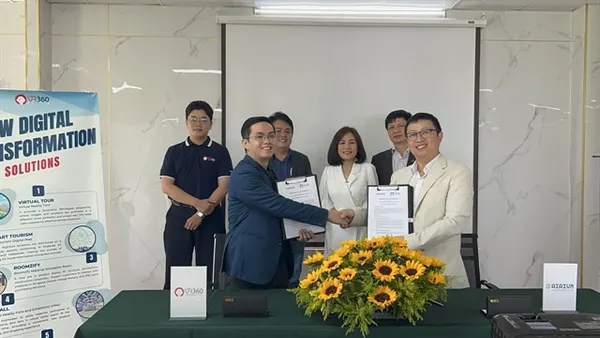 Society
Society

 |
| At least two or three networks of training centres will be established in the northern, central and southern regions focusing on AI studies. — Photo bnews.vn |
HÀ NỘI — Deputy Prime Minister Lê Thành Long has approved a project to develop a system of high-quality technology training centres.
Under Decision No. 374/QD-TTg, until 2030, the plan is to have at least one or two networks of training centres for each priority technology field of the Fourth Industrial Revolution, including but not limited to artificial intelligence, semiconductor development, next-generation network (NGN), smart cybersecurity and advanced transport infrastructure development.
Particularly in the fields of AI, semiconductors and biotechnology, at least two or three networks will be established across the northern, central and southern regions.
Each network will be led by one higher education institution, which has an existing capacity in the field, and will involve at least five other higher education institutions, as well as domestic and foreign companies.
Each network will organise at least one high-quality programme for adaptive training, retraining, advanced training, and specialised training to develop human resources in their respective field.
Each network should be able to attract at least a hundred Vietnamese and foreign scientists and experts, to teach and conduct research at higher education institutions in Việt Nam.
The funding for the project will come from the State budget, both from the Government’s regular expenditures and from funds allocated to ministries, sectors and local areas.
It may also involve other sources of funding that participating entities can acquire.
The project encourages funding from businesses, organisations and individuals domestically and internationally. Funding from programmes and projects that have been previously approved can also be used for the project’s implementation. — BIZHUB/VNS




